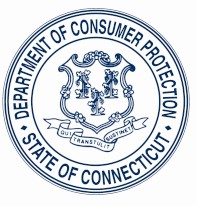The Reviews of Connecticut’s Latest Bet Are Coming in…
UPDATED: 2:36PM: For grammer and to include details from a General Assembly fiscal report.
At one point the Mohegan and Pequot tribes bid to blunt the impact of MGM Springfield was enjoying an incredible turnaround. Originally, few put any stock in a bill passing this year, but then in a rather sudden development, Connecticut Senate leaders, House members, labor and the tribes stood shoulder to shoulder announcing legislation to fight back.
Since then, however, the bill has been lurching its way through the legislature. The slow speed is partly due to the review process bills in Connecticut must endure, including those of nonpartisan fiscal and research analysts, who have raised questions about some elements of the legislation.
The Public Safety Committee approved the bill last month, but Tuesday the Senate referred the bill to the Planning and Development Committee. Conveniently enough, that committee is co-chaired by one of the bill’s biggest champion’s, Cathy Osten, whose district encompasses both Connecticut casinos.

Sen. Cathy Osten’s committee is the expanded bill’s next stop. (via senatedems.ct.gov)
A spokesperson for Osten said the P&D Committee had scheduled a hearing for April 20 to consider bills referred from the floor, which would include the expanded gaming bill.
In Connecticut, a large nonpartisan bureaucracy reviews legislation and produces sometimes comprehensive fiscal and legal reports. While final language is often filtered through the respective Democratic and Republican caucuses’ attorneys and financial details can become political footballs, the nonpartisan reports are a major part of the state’s legislative process.
The Office of Legislative Research, one such nonpartisan entity, broke down SB 1090, the bill’s official number into its constituent parts and what actually executing the bill would entail.
Because Connecticut’s existing casinos are on tribal land, the state’s relationship with the venues is relatively hands-off excluding the revenue sharing arrangements. The OLR report makes clear that such would not be the case with the expanded gaming. New facilities would be subject to many of the rules that off-track betting parlors already face. That would come in addition to a host of regulations the Department of Consumer Protection would be expected to draft, including for facility and employee liceneses.
Other regulations DCP would be charged with writing are security, accounting, operating hours, manufacturing of machines, and suspension of licenses. According to ORL, the bill rather explicitly sets the fee for each gambling concession at $250, probably per machine or table.
The legislature’s Office of Fiscal Analysis anticipates most of the law’s costs to the state would be to fund DCP’s activities. It pegged that figure at between $5.4 and $6.8 million. Without any agreements between the state or municipalities and the tribes, OFA could not determine what revenue Connecticut could glean from the law.

An existing entity would regulate new casinos in Connecticut if pending legislation is approved. (via ct.gov)
Connecticut’s decision to empower its consumer protection department to manage gaming is in contrast to Massachusetts’s creation a new entity. Also unlike Massachusetts, the bill, as written, would only require the host community’s legislative body to approve an agreement with the tribes, rather than via community referendum. Notably, town officials from both Enfield and Windsor have already expressed opposition to hosting a casino.
As for the memoranda of understanding (MOU) between the tribes and the state itself, the Connecticut legislature would need to ratify it before finalization.
However, it is those potential MOU’s which could face the most scrutiny. The legislation plainly assigns expanded casino operators to a joint venture of the Mohegan and Pequot tribes. The OLR report suggests this could run afoul of the state’s constitutional ban on emoluments.
An emolument is a job, salary or other privilege the legislature directly grants to a person or entity. OLR notes the Connecticut Supreme Court has interpreted the constitutional prohibition to apply where no legitimate public purpose exists.
Reasonably, the Connecticut legislature could argue that preserving the jobs of its gaming industry is a public purpose. Yet, a lengthy court battle could derail plans (or rather hopes) to begin operating a new facility north of Hartford before MGM Springfield opens.
OLR also notes the scheme the bill envisions could violate Connecticut’s anti-trust statute, although the report provides little commentary on the issue. Perhaps more noteworthy, though not mentioned in the report, is whether it could trigger federal anti-trust perspective or whether the US Indian gaming laws contemplates potential monopolies.
As of posting time, Democratic Senate leadership and a representative from Mohegan did not return a request for comment on the issues ORL flagged. On Thursday, the CT Mirror reported that Connecticut Attorney General George Jepsen warned the legislature of additional legal risks should the legislation pass.
Either way, the show of force by legislators like Osten and Senate Democratic leadership, suggests these issues will not be insurmountable. OFA’s report expects Connecticut’s casino revenue will fall $63 million by fiscal year 2018, but officials have included falling gaming revenue for years. Rather, the concurrent loss in jobs is motivating legislators far more than the loss of revenue.
The General Assembly’s deadline to pass legislation for the 2015 session is June 3.
